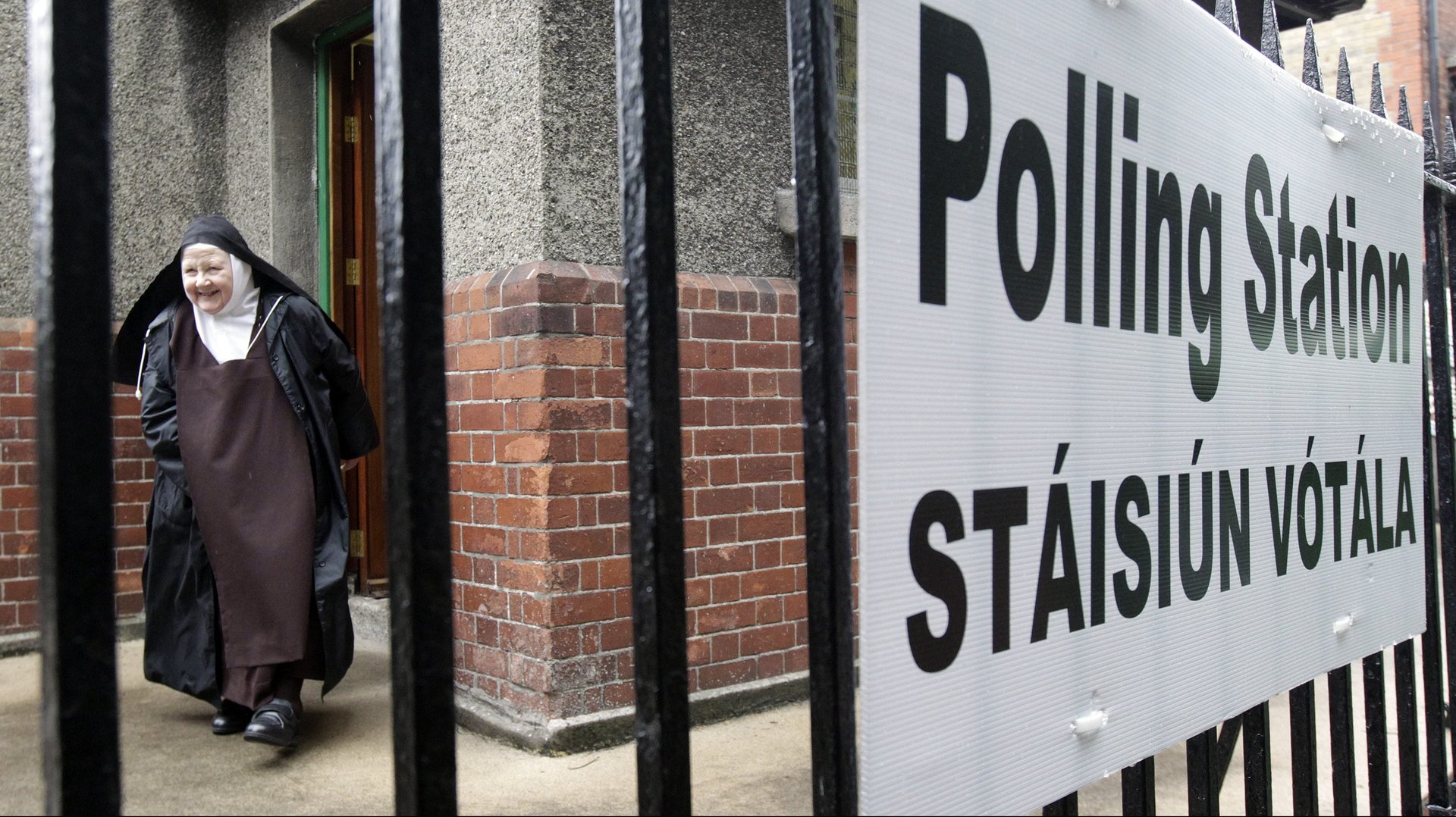Ireland has voted overwhelmingly in favor of making divorce easier
The Irish overwhelmingly voted in favor of changing the country’s archaic divorce laws, which currently require a four-year waiting period. More than 82% of voters supported changing the constitution to lower the waiting time, and also to recognize foreign divorces. It was the largest margin of victory for a referendum since the Good Friday Agreement in 1998, which 95% of voters backed.


The Irish overwhelmingly voted in favor of changing the country’s archaic divorce laws, which currently require a four-year waiting period. More than 82% of voters supported changing the constitution to lower the waiting time, and also to recognize foreign divorces. It was the largest margin of victory for a referendum since the Good Friday Agreement in 1998, which 95% of voters backed.
The government said it would introduce legislation to change the laws and has previously mentioned a two-year waiting time instead.
The referendum comes as part of a broader push to liberalize Ireland’s social policies. Divorce was only legalized in 1995 and by a razor-thin margin (50.2% to 49.7%). But change, when it comes, can come quickly: In 2015, 62% of voters endorsed legalizing same-sex marriage, and last year, 66% backed repealing Ireland’s abortion ban.
The results of the latest divorce referendum were so widely anticipated that there was little celebration. “This was not about rocking the system, it was about humanizing the system,” said Josepha Madigan, the culture minister, who led the government’s referendum campaign. About half of the Irish electorate cast votes, with the “yes” (or, tá) vote winning in all 31 constituencies.
While that’s progress for a country with deep Catholic roots, a two-year waiting period would still make divorce difficult. Places like the UK (2019) and New York state (2010) have moved to a no-fault divorce framework in which couples do not have to provide a “fact” or reason for divorcing, instead relying on the fact that it’s just not working. In the UK, prior to the changes, one spouse had to allege adultery or unreasonable behavior for the proceedings to start; the change means one or both parties can claim the marriage has broken down irretrievably. The move was also intended to stop one partner from blocking a divorce if the other one wants it.
At the time of the proposed UK changes, Justice Secretary David Gauke said it would benefit kids: “Hostility and conflict between parents leave their mark on children and can damage their life chances,” he said.
It seems the changes in all countries might benefit the adults, too.